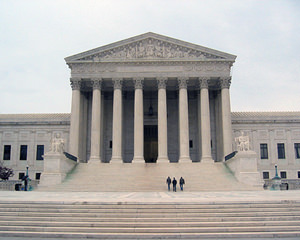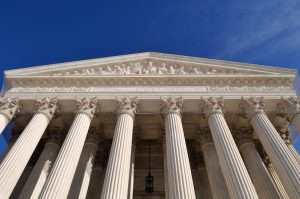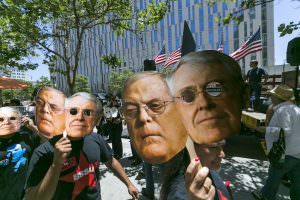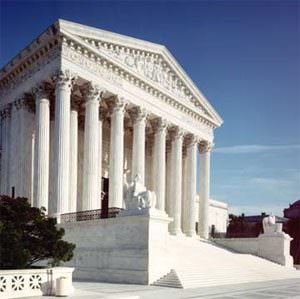High Court Kicks Off Health Care Hearings
On Monday, the U.S. Supreme Court launched a three-day deliberation session on the timely (well, for Campaign 2012, anyway) and controversial topic of the health care overhaul that President Obama oversaw and signed into law in 2010.
On Monday, the U.S. Supreme Court launched a three-day deliberation session on the timely (well, for Campaign 2012, anyway) and controversial topic of the health care overhaul that President Obama oversaw and signed into law in 2010. On the program for the first day was an opening debate about whether the court had the authority to hear the case at this point, which, The New York Times reported, was not a point of contention between the opposing factions involved in the case.
Your support matters…The New York Times:
The case’s main event — arguments over the constitutionality of the law’s requirement that most Americans obtain insurance or pay a penalty — will not come until Tuesday. On Monday, the justices considered the Anti-Injunction Act, which says that “no suit for the purpose of restraining the assessment or collection of any tax shall be maintained in any court by any person.” In other words, people who object to taxes must pay first and litigate later.
That is so, said Justice Stephen G. Breyer, because “taxes are, for better or worse, the life’s blood of the government.”
The first penalties for violating the health care law’s individual mandate do not kick in until 2014, and they must be paid on federal tax returns in April 2015. That means, as the United States Court of Appeals for the Fourth Circuit, in Richmond, Va., ruled last year, that courts are for now powerless to decide the law’s constitutionality.
Independent journalism is under threat and overshadowed by heavily funded mainstream media.
You can help level the playing field. Become a member.
Your tax-deductible contribution keeps us digging beneath the headlines to give you thought-provoking, investigative reporting and analysis that unearths what's really happening- without compromise.
Give today to support our courageous, independent journalists.








You need to be a supporter to comment.
There are currently no responses to this article.
Be the first to respond.